10 Plants That Naturally Repel Mosquitoes: Enhance Your Garden Comfort
Maintaining a comfortable outdoor space is a challenge we all face, especially when it comes to dealing with mosquitoes. With our expertise in home improvement, we recommend incorporating natural mosquito repellent into your garden. Not only does this keep mosquitoes at bay, but it also enhances the aesthetic appeal of your outdoor area.
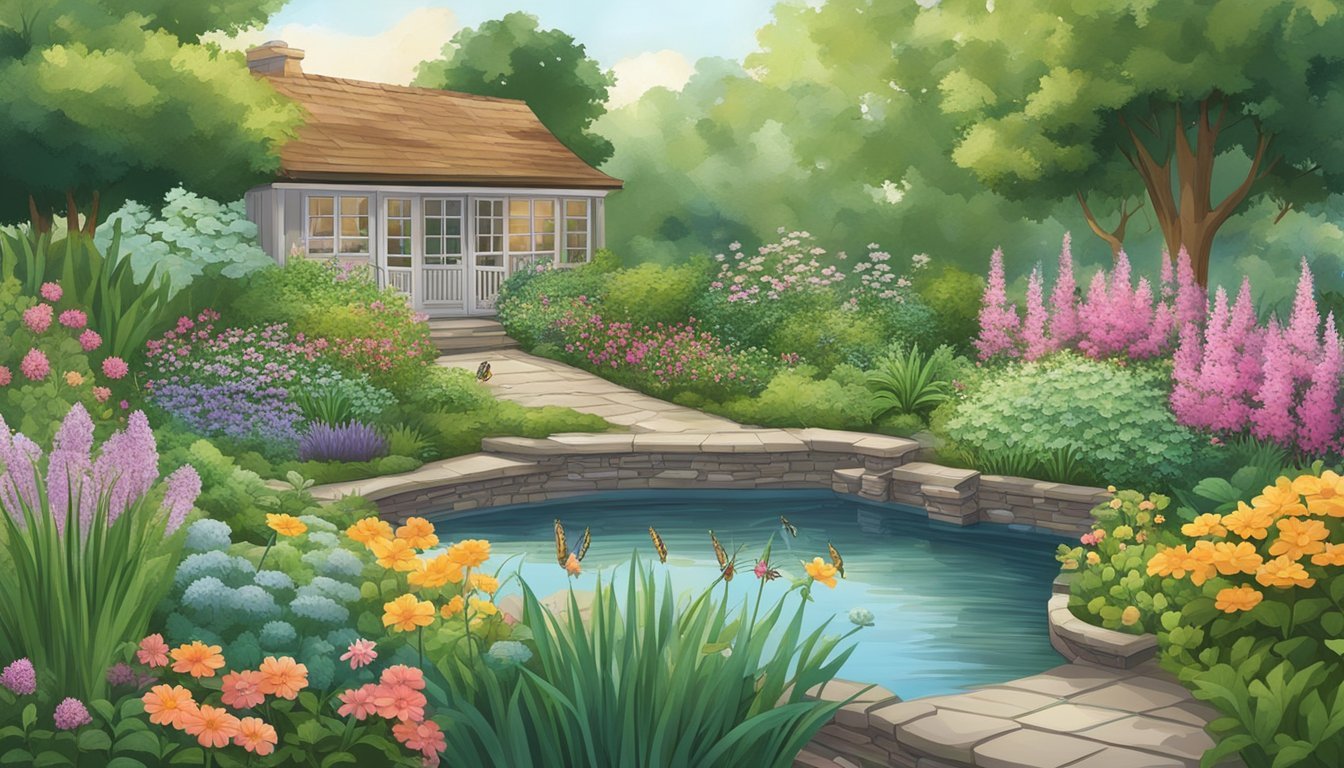
We’ve identified a selection of mosquito-repelling plants that serve as a safe and natural barrier against these pesky insects. By strategically placing plants like citronella, lavender, and basil around your garden, you create a fresh-smelling, inviting space while reducing the presence of mosquitoes.
Planting these naturally repellent varieties not only offers a practical solution but also contributes to a more diverse garden ecosystem. We’ll guide you through choosing the right plants that thrive in your setting for an effective and organic approach to mosquito control.
Mosquito Repellency and Plants – How Does it Work?
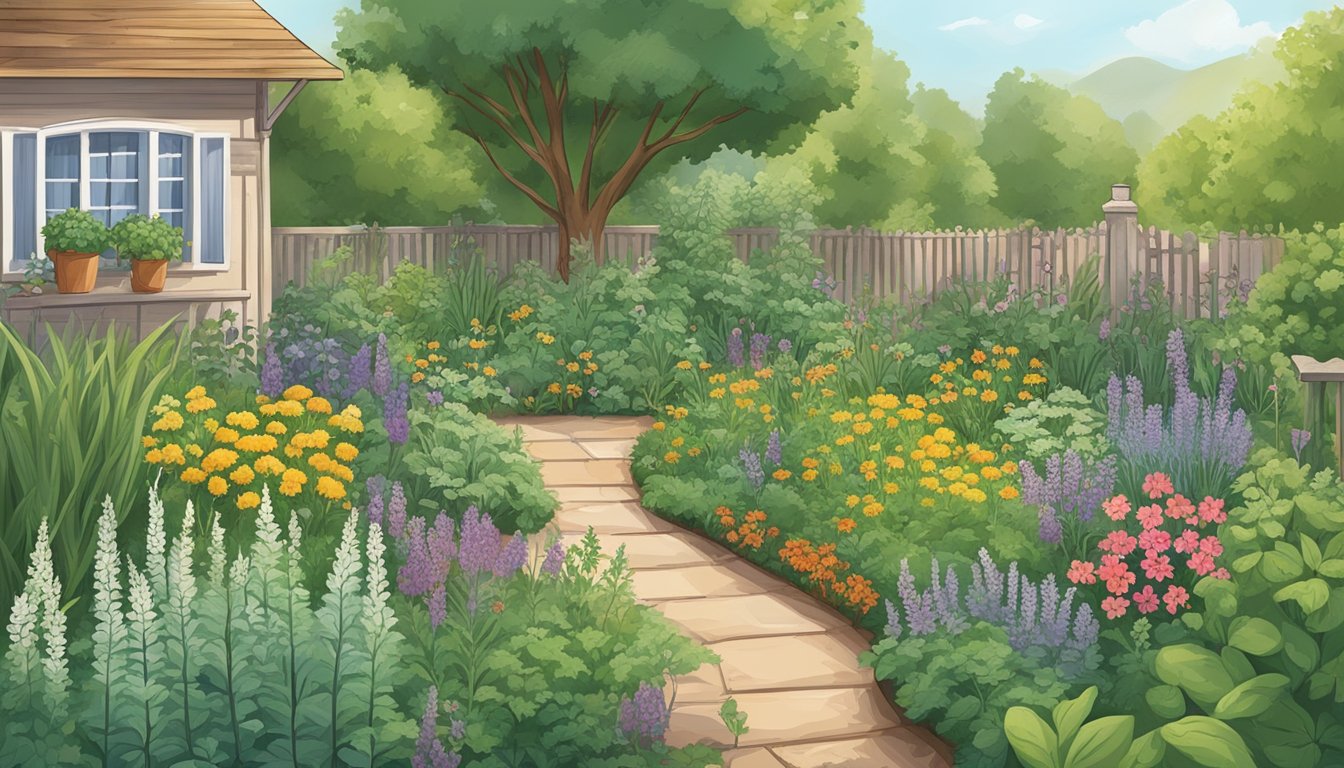
When we’re looking to enjoy our gardens, mosquitoes are unwelcome guests. It’s essential for us to understand that certain plants have natural mosquito-repelling properties. These plants produce scents that, while pleasant to us, are a deterrent to mosquitoes. For example, the essential oils found in some plants’ leaves can be especially effective in keeping these pests away.
Essential Oils and Scents:
Certain plants contain oils that mosquitoes find offensive. These oils, when released into the air, help to repel mosquitoes naturally. Crushing the leaves of these plants can enhance the scent released, boosting the repelling effect.
- Lemon Eucalyptus: The scent is a proven mosquito repellent.
- Citronella: Commonly found in commercial repellents.
- Basil: A culinary herb with mosquito-repelling properties.
- Lavender: Smells great and repels mosquitoes.
- Marigolds: Emit a smell mosquitoes dislike.
Natural Mosquito Repellent:
Incorporating plants into our outdoor spaces offers a natural mosquito repellent solution. By strategically placing these plants around seating areas or pathways, we can create a barrier against mosquitoes.
Plant Care and Positioning for Maximum Efficacy:
We need to ensure that these plants are well cared for and positioned in sun-exposed areas to maximize their growth and mosquito-repelling potential. Most of these plants require full sun and well-draining soil to thrive.
By understanding and utilizing these natural repellents, we equip our gardens with an armory against mosquitoes, creating a more enjoyable and bug-free environment.
Top Mosquito-Repelling Plants
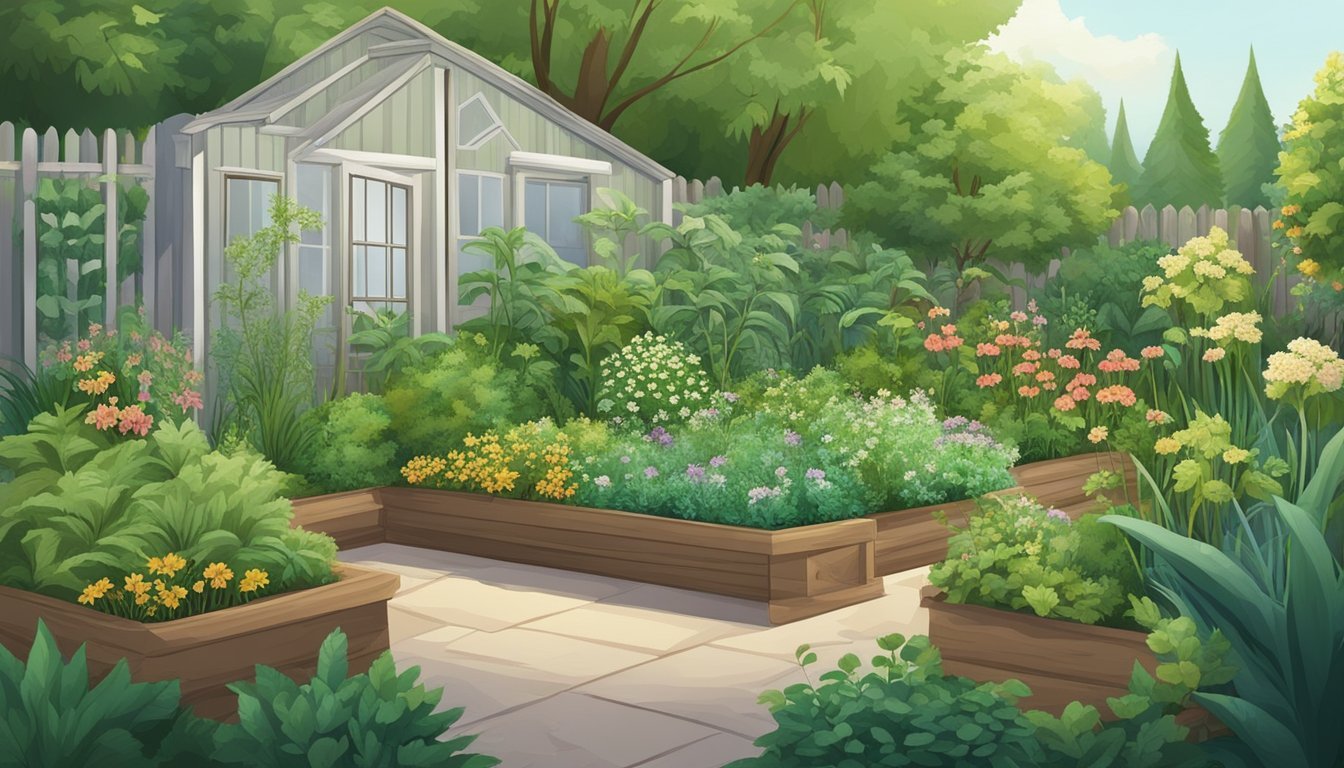
Incorporating certain plants into your garden can serve a dual purpose: enhancing the beauty of your space and keeping mosquitoes at bay through their natural scents and oils.
Lavender
Lavender is not only prized for its soothing fragrance but it’s also an effective mosquito repellent. The plant produces a scent that mosquitoes find particularly offensive. Planting lavender around seating areas or paths can create a natural barrier against these pests.
Citronella Grass
Citronella Grass, known for its strong aroma, is the main source of citronella oil, an ingredient commonly found in mosquito repellents. It’s most effective when planted in the ground around outdoor living spaces as its scent is released when the leaves are disturbed.
Marigolds
Marigolds contain pyrethrum, an ingredient used in many insect repellents. Their bold scent is known to repel mosquitoes. For best results, place potted marigolds near mosquito entry points such as doors and windows.
Rosemary
Rosemary is a culinary herb that also doubles as a mosquito repellent. Its woody scent is effective at keeping mosquitoes away. Plant rosemary in containers or in the ground to protect areas of your garden where you spend a lot of time.
Basil
Basil not only enhances your meals but also emits a scent that can deter mosquitoes. It’s particularly potent when the leaves are crushed, releasing essential oils. Keep basil in pots or planted in the garden for a mosquito-free zone.
Catnip
Catnip is a member of the mint family, and its natural oil, nepetalactone, is a powerful mosquito repellent. In fact, it’s been found to be more effective than DEET. Plant catnip in your garden to keep the mosquitoes away.
Planting and Care Tips for Mosquito-Repellent Plants
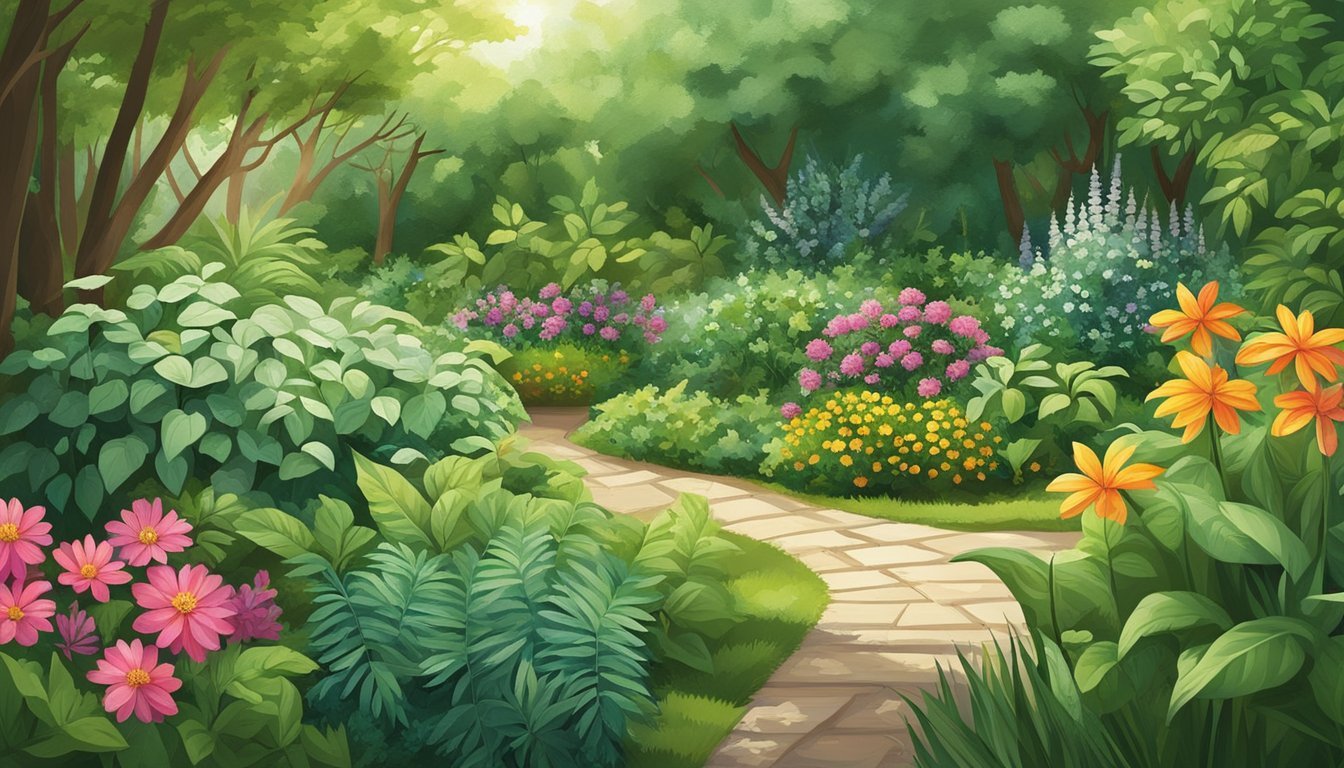
When selecting mosquito-repellent plants for your garden, it’s crucial to consider their growing requirements to ensure they thrive and effectively keep pests at bay. Here are several key tips to accomplish just that:
Sunlight Requirements:
- Full sun: Plant varieties such as eucalyptus and marigolds require full sun to flourish. This means they need an unobstructed exposure to sunlight for at least six hours each day.
- Partial shade: Some plants, like lemon verbena, can tolerate—and even prefer—partial shade, offering you flexibility in garden placement.
Soil Preparation:
- Rich soil: Prioritize enriching your soil with organic matter to nourish plants like eucalyptus.
- Drainage: Many mosquito-repelling plants are sensitive to water-logging. Ensure your garden beds have well-draining soil to avoid root rot.
Watering Habits:
- Regular but not excessive watering is key, especially during dry spells. Overwatering can damage plants and diminish their mosquito-repelling properties.
Gardening Maintenance:
- Pruning can keep plants like lavender from becoming leggy, maintaining their aesthetic and effectiveness.
- Pinching off the tips of plants like basil can encourage bushier growth and enhance their repellent qualities.
Incorporation in Outdoor Spaces:
- Integrate these plants into your garden beds or keep them in containers on patios or balconies.
- Remember, ease of growth makes plants like mint and basil handy for both repelling mosquitoes and adding to your culinary garden.
Finally, remember that consistent care is what brings out the best in these plants, enhancing their mosquito-repelling abilities and ensuring your outdoor spaces are comfortable for you to enjoy.
Integrating Mosquito-Repelling Plants with Other Garden Elements
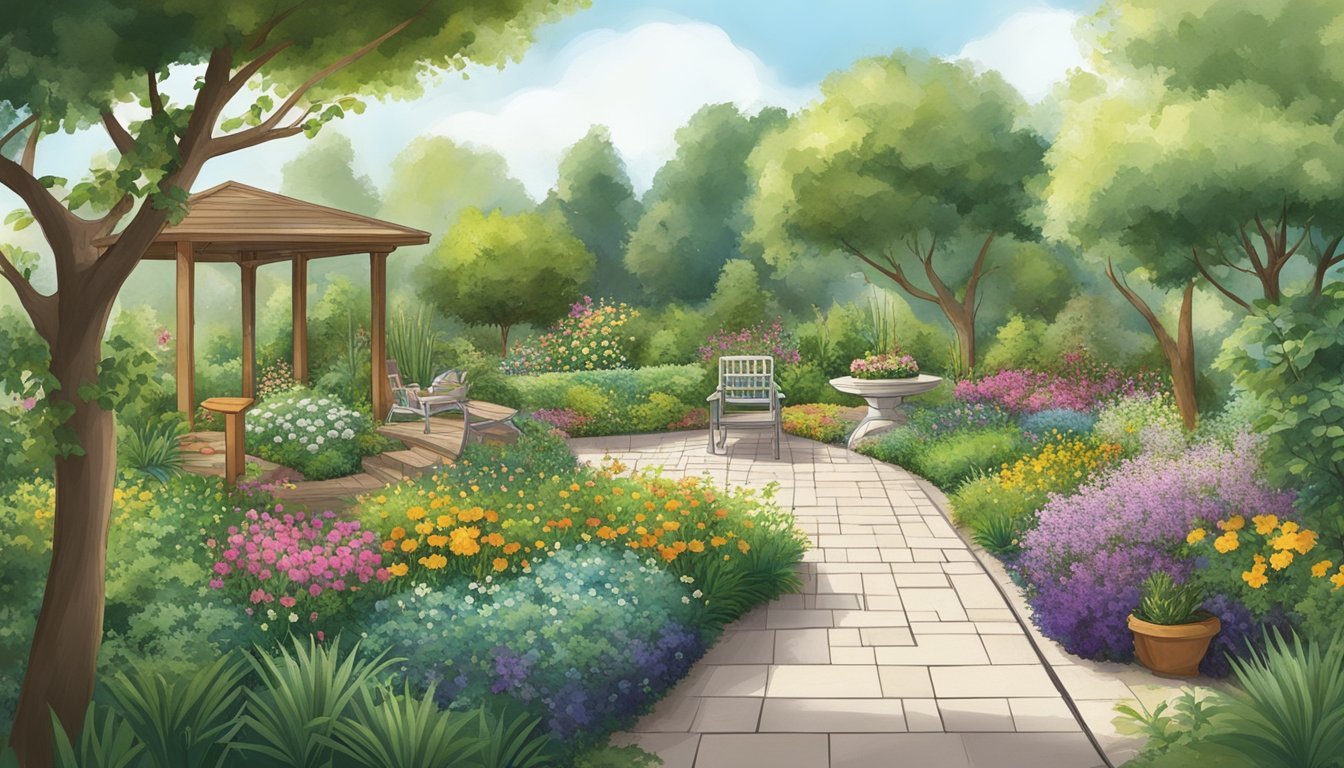
When designing a garden, we can strategically place mosquito-repelling plants to enhance the area’s aesthetics and functionality. By considering companion planting and attracting beneficial insects, we create a thriving ecosystem that naturally manages pests.
Companion Planting
Companion planting involves positioning plants that mutually benefit each other close together. The strong scents of certain herbs and flowers can mask the attractive odors of nearby plants, making it harder for mosquitoes to find them.
For example, marigolds with their pungent smell can be placed alongside vegetable patches to deter pests. Meanwhile, aromatic herbs like mint can confuse mosquitoes with their intense fragrance. Here’s a quick guide:
- Marigolds: Plant among tomatoes to deter pests.
- Mint: Works well near seating areas to keep mosquitoes at bay; just ensure it’s contained to prevent spreading.
- Lavender: Effective when planted around patios or pathways for a pleasant, pest-reducing ambiance.
Attracting Beneficial Insects
We can bolster our garden’s defenses against mosquitoes by drawing in other insects. Flowers like chrysanthemums and ageratum contain compounds such as pyrethrin and coumarin, which are natural insect repellents. By planting these, we can not only repel mosquitoes but also attract pollinators like bees and butterflies that are vital for a healthy garden. A well-planned garden will:
- Attract Bees: With plants like lavender and marigolds, which also repel mosquitoes.
- Support Butterflies: With nectar-rich plants that double as mosquito repellents.
Incorporating this approach gives us the dual benefits of pest control and pollinator support—keeping our gardens blooming and mosquito-free. Remember to wear protective clothing while gardening to prevent bites and ensure a pleasant horticultural experience.
Additional Natural Mosquito-Repellent Options and Considerations

When we discuss repelling mosquitoes naturally, it’s crucial to understand that plants are just a part of the solution. Let’s explore additional methods and products that complement our green efforts.
Oils and Lotions: Natural oils can be effective mosquito repellents. Essential oils such as eucalyptus and citronella can be applied to the skin or added to lotions. However, for sensitive skin, dilute with a carrier oil.
- Lemon Eucalyptus Oil: A well-known choice for natural protection against mosquitoes.
- Tea Tree Oil: Valued for its antiseptic properties, it also serves as a repellent.
| Essential Oil | Concentration | Effective Duration |
|---|---|---|
| Lemon Eucalyptus | 30-40% | Up to 6 hours |
| Tea Tree | 5-10% | 2-3 hours |
Sprays and Candles: These are convenient for creating a mosquito-free zone. Candles made with natural oils release their scent into the air, forming a protective barrier.
- Citronella Candles: Provide ambient light and help in keeping mosquitoes at bay. Place them around the perimeter of your outdoor space.
Protective Clothing: Long-sleeved shirts and trousers treated with repellent provide another layer of defense against bites. Ideal for areas with high disease risks from malaria, dengue, Zika virus, or yellow fever.
Chemicals and DEET: While we focus on natural options, it’s essential to mention DEET-based products. These are highly effective but should be used according to safety guidelines, especially for children and pregnant women.
By integrating these methods with your garden plants, we can create a robust defense against mosquitoes and the diseases they carry. Remember, always follow safety instructions when using any repellents and consult a health professional for tailored advice.
Let Us Know How We’re Doing!
Did this expertly prepared resource answer your question?
Do you have another question about home maintenance, home improvement projects, home appliance repair, or something else?
Get more information, send in questions and keep the discussion going by contacting the I’ll Just Fix It Myself company customer service team at at 1-800-928-1490 or Email us at [email protected]
